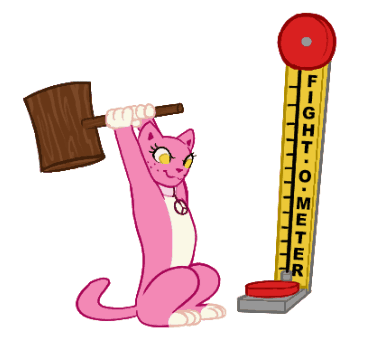Starting Late and Still Retiring Early
(This page may contain affiliate links and we may earn fees from qualifying purchases at no additional cost to you. See our Disclosure for more info.)
Today we’re excited to introduce you to one fine lady! Mrs. Groovy has a lot to share about how she and Mr. Groovy started late but still retired early. We think you’ll enjoy her story and find some inspiration for your own financial journey!
Inspiring Money Stories: “Mrs. Groovy”
1) Introduce Yourself to The WwM Readers!
Hi, I’m Mrs. Groovy. I’m 59 years old and I’ve been married to Mr. Groovy for 16 years. He’s 56. We were late bloomers when it came to love.
Mr. Groovy and I both retired on the same day in October of 2016. We have no debt and no mortgage. We live off our investment income and a small pension Mr. Groovy receives from working in local government in New York for twenty years.
We spend approximately $36,000 a year – that covers basics, discretionary spending, and travel. We have everything we need and we feel very blessed. If we won the lottery, I honestly don’t think our lives would change much except perhaps we’d purchase some acreage in Montana.
Mr. Groovy and I relocated from New York to North Carolina in 2006. A few weeks ago we sold our home outside of Charlotte and we’re about to build a new, but smaller home, in Louisburg, NC. We purchased unrestricted land (outside of a subdivision, no rules or regulations, we can even have chickens and goats if we want them) in a rural farm setting.

2) Did your parents teach you about money as a child?
My mom and dad taught me about money by example. They didn’t believe in debt. They didn’t have much money but they didn’t believe in being cheap either. My father worked six days a week but we always went out to dinner on Saturday nights – nothing special, just a local diner. He always tipped well, whether to a waiter or waitress, or to a handyman doing a five-minute fix for us in our apartment building.
My father basically held a clerical position for his entire working life. And so my mom, who had gone to a trade school for high school, used her secretarial skills to get into the New York court system. She began as a legal secretary while I was still in grade school. Over the years she worked her way up to the position of Court Clerk, which ironically, is not a clerical position but rather a professional position usually held by a lawyer. But she only had a high school degree. She was hugely respected throughout her career and I recall several of the Supreme Court judges and the Brooklyn District Attorney attending her retirement luncheon. Her path convinced me that with enough determination, a bit of brainpower, and a strong desire, a woman could make a career for herself.
It wasn’t all a bed of roses for my mother. When she first joined the court system, there was no bathroom for women. She fought hard to get one – and get one she did. She also had to file grievances through her union to get the money she was entitled to when she was first promoted out of the title. She was also a very diligent worker and warded off a lot of animosity from co-workers, male and female, who were content to be slackers – you may be familiar with some of Mr. Groovy’s posts describing how all New York government workers are not created equal. But my mother couldn’t be anyone except who she was and continued to excel in her job. I learned from her that a woman should never “be less” so that someone else could “be more.”
3) Describe your post-secondary education. What was your career path?
I have a BA in Theater and a graduate degree (MPA) in Public Administration. I probably could have been considered the queen of the side hustle back in the day before anyone called “odd jobs” a side hustle. While pursuing an acting career I did everything from office temp jobs, to spraying people with perfume (sometimes against their will) to handing out cheese samples.
It’s tough for non-actors to understand, but during the years I worked in TV and theater, earning a living was more like subsisting. At one time, if I earned at least $2,500 or $3,000 a year and had 20 weeks of work (not full weeks, 1 day a week counted as a week) I was doing great. Because that meant a) I could get free union health insurance for a year and b) I could get 26 weeks of unemployment, and c) I qualified for pension credits. I’ll be due a small pension when I’m 65 from AFTRA, the TV/Radio union which is now joined with Screen Actors Guild.
By the time I was nearing 40, a life built around waiting for the phone to ring, missing out on weddings and birthdays, and never knowing when I’d earn another paycheck grew stale. But I couldn’t see myself working just any 9 to 5 office job and so I decided to go back to school for a graduate degree and pursue a position in nonprofit administration. And that was when I met Mr. Groovy.

4) Tell us about your income performance over time. How is your partner involved in your financial matters?
My parents weren’t immigrants but they had immigrant pride when it came to education. They felt education was very important and didn’t allow my brother and me to work steady jobs until after high school. I did some babysitting up until then but my first real job was in the Theater Department at Brooklyn College. I was on the lighting staff and earned $5 an hour, well above minimum wage which was around $3 an hour. I loved climbing scaffolding, hanging “lekos” and “fresnels” and being part of the stage crew.
I remember taking a full-time job in the early 80s after college before I got my bearings to pursue a professional acting career, and it paid $25,000 a year. As an actor, I often earned $125 to $300 a day, and once in a great while, over $1,000 a day – but I may not have worked again subsequently for another two months.
After finishing grad school I had a few different nonprofit positions where I earned in the 30Ks. My starting salary in the last job (from which I retired) was in the 40Ks and ended at a little over $60K.
As for how Mr. Groovy and I handle finances, it’s a team effort although we each have our forte. He tends to deal with our investments while I deal with our bills. Neither of us ever makes a purchase above $50 without talking to the other. And there’s no yours or mine when it comes to money. It’s OUR money.
There are so many ways to make extra income. I’m very intrigued by the Amazon FBA program and selling on eBay. I don’t think it’s easy necessarily, but if you can find a niche that really interests you, there’s money to be made. And there are plenty of free online courses and articles that can teach you the basics. Here are two for starters: Don’t Spend $5,000 on an Amazon Course and How to Sell Clothes on eBay Better Than Everyone Else, by the Luxe Strategist from our blogging community.
5) What do you think is one of the most difficult money or career challenges for women?
Learning how to negotiate well is an under-taught skill, in my opinion. I think this goes for both men and women but even more so for women. We’re socialized to feel like we’re on the receiving end of the deal when it comes to securing a job. We need to learn how to take our power and be the initiator. I don’t think you can pick salary figures out of the air willy-nilly, but you need to know what your skills, education, and brainpower are worth and be willing to stand up for yourself. In my opinion, Ramit Sethi from I Will Teach You to be Rich is the master at this.

6) Did you have a big “aha” moment related to your finances? What’s one money mistake have you made that others can learn from?
Many folks answer this type of question saying they wish they started saving earlier. And while I agree with that, I think it’s extremely difficult for someone in his or her 20s to set aside money for investing and saving when it’s tough to make ends meet at all – especially given the crippling amount of student loan debt incurred by college graduates. My peers and I had little to no student loan debt, and still, we didn’t save.
I didn’t have a big “aha” moment until after Mr. Groovy and I married. Frankly, being a single woman living in NYC, in a career path going nowhere, I felt stuck. I couldn’t get beyond my own inertia. But when I finally found my partner in crime I found it easier to chart a financial course. And the pivotal moment for us both came when we received a property tax bill with a hike from $3K to over $5K in just one year. That was the beginning of our three-year plan to escape from New York. We focused on cutting our spending and we saved like crazy people.
I’m not saying everyone needs to have a partner to be motivated. But you need to find a strong reason to want to improve your finances.
7) What tools, apps, or programs do you use to keep track of your finances?
Mr. Groovy created the Groovy Expense Tracker and the Groovy Portfolio Tracker. He uses both tools and together we use the Expense Tracker. The Expense Tracker is basically an Excel spreadsheet broken into categories, with tabs for daily and recurring expenses. We’ve tracked every penny we’ve spent since 2015. Tracking spending works for me in the same way a daily weigh-in on my bathroom scale works for me. I don’t need to plan ahead as much as I need to learn from where I’ve been. If where I’ve been works – I don’t need to budget or diet.
We don’t do cell phone banking, use Apple Pay, or any other shortcuts or tools. We pay credit cards well before the balance is due and set up automatic payments for recurring bills. The book The Automatic Millionaire by David Bach convinced us to develop a “set it and forget it” mentality for paying ourselves (our retirement plans) and our bills.
8) What does your work-life balance look like? What do you do to stay healthy?
Mr. Groovy and I both retired in October of 2016. We began blogging at Freedom Is Groovy the previous year so that we’d have a mutual hobby to focus on in retirement. Now, our house building project which we are chronicling in our Building Groovy Ranch series is taking up a lot of our time and focus.

To stay healthy, Mr. Groovy and I walk every day for approximately three miles. I do several short YouTube videos for strength training and Mr. Groovy uses the park equipment on our walking path for dips and squats.
9) How would you like to help a good friend who struggles with money?
Unfortunately, we have several family members and friends who struggle with money. What I’d like to do is slap them upside the head and say “Snap out of it” (like Cher in the movie Moonstruck). I don’t mean to make light of this, but the people I know who are struggling are mainly in that position due to their own behavior. They have good jobs, skills, and education. They just don’t want to change. So I don’t think they can be helped. You have to be open and receptive to new information and new behaviors if you want lasting change in your life.
For anyone who is actually struggling financially due to lousy circumstances, low income, poor health, and other real factors, I would make two very important suggestions. The first one is to get out of debt. And if you don’t earn or have enough money to get out of debt, start with deciding not to go further into debt. The second suggestion is to find a mentor or a role model. You have absolutely no idea how many people are willing to right this moment guide’ you to the right behaviors if you look for them. Heck, most people in our personal finance community would help you in a heartbeat. Just reach out by email and you’d be surprised. You can email me at [email protected] and I will answer.

10) Is there anything else you’d like to share with our Women who Money readers?
I’d just like to take a second to thank Amy and Vicki for providing this forum and resource for women – and men. I’m so proud to be a part of it. (Thank you, Mrs. G., we are honored to have you!)
The WwM Team’s Key Takeaways from our Interview with Mrs. Groovy:
- I learned from her that a woman should never “be less” so that someone else could “be more.” Such an amazing comment about what Mrs. G learned from her mother!
- Women shouldn’t feel like they got a good “deal” when offered a job. They should know what their skills and education are worth in the marketplace. Women need to learn to negotiate no matter how we have been socialized.
- Inertia can certainly set in. You need to find a strong reason to want to improve your finances. (We would definitely agree!)
- The “set it and forget it” way of doing things works for the Groovy’s. Find what works for you!
- People that have skills, resources, and education still make poor money decisions. It’s about behaviors and poor choices and they have to want to listen and change.
- There are people who want to help people who are struggling with money. Don’t be embarrassed or ashamed. Find someone who can help you move forward.
Thanks for sharing your awesome story, Mrs. G!
If you’d like to be considered for an interview or to share your story, send us a note.
